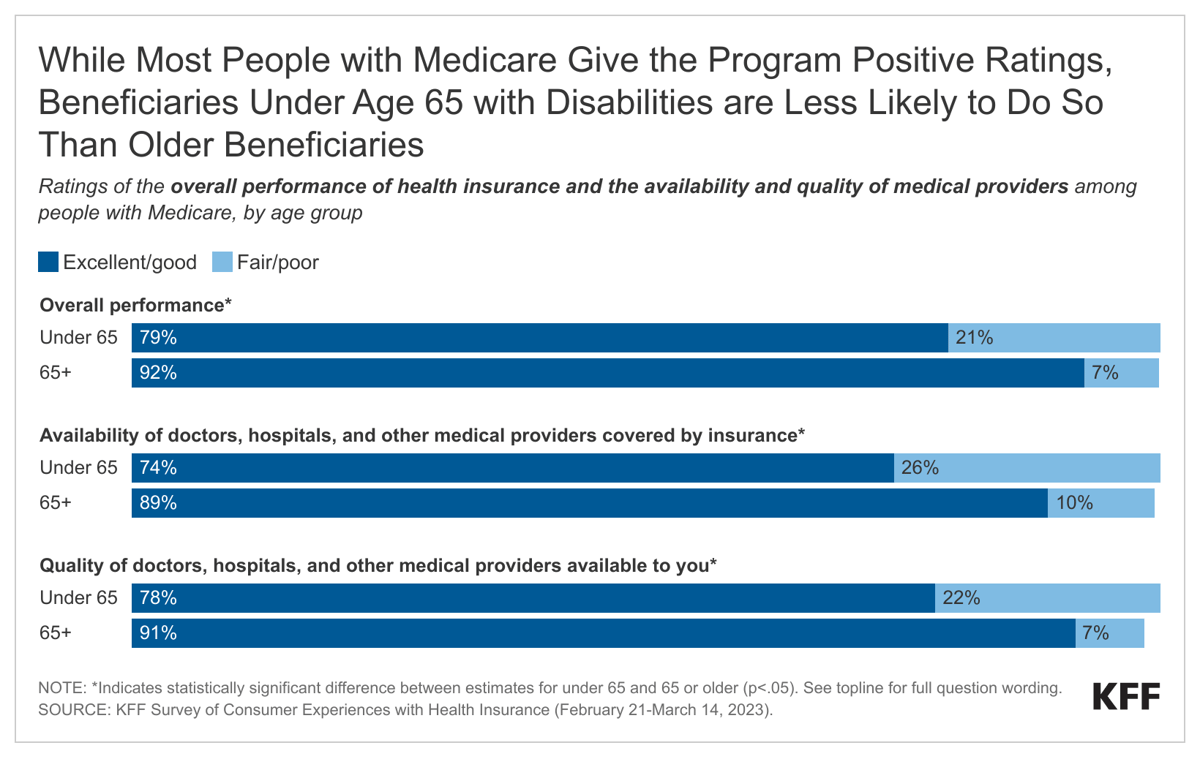The survey finds that among Medicare beneficiaries who reported a problem with their health insurance in the past year, a larger share of those under age 65 with disabilities than older adults reported being unable to receive recommended treatment (24% vs. 6%) and experiencing experienced significant delays in receiving medical care or treatment (21% vs. 6%) as a result of the problems they had with their insurance.
More than one in three people with Medicare under age 65 with disabilities report they had a problem paying a medical bill in the past 12 months (35%), compared to one in ten (9%) of those 65 or older. Younger beneficiaries with disabilities were also more likely to report delaying or going without specific health care services due to cost, such as dental care (42% vs. 24%), prescription drugs (18% vs. 10%), and doctor visits (14% vs. 4%).
The survey also provides insight into beneficiary experiences with the enrollment process at a time when people with Medicare are selecting coverage for 2024 during the program’s annual open enrollment period, which began Oct. 15 and runs through Dec. 7. Medicare beneficiaries under 65 with disabilities were more likely than older adults to say they had difficulty with the health insurance enrollment process and comparing insurance options compared to beneficiaries aged 65 or older, including figuring out if their income qualifies them for financial assistance (30% vs. 11%), as well as understanding how much they will have to pay out-of-pocket when they use health care (32% vs. 18%).
Designed and analyzed by researchers at KFF, the KFF Survey of Consumer Experiences with Health Insurance was conducted February 21-March 14, 2023, online and by telephone among a representative sample of 3,605 adults in the U.S. with health insurance coverage, including 885 adults with Medicare (including 165 adults under the age of 65 with Medicare and 720 adults age 65 and older with Medicare). Interviews were conducted in English and in Spanish. The margin of sampling error is plus or minus 2 percentage points for the full sample and plus or minus 4 percentage points for adults with Medicare. The margin of sampling error is plus or minus 11 percentage points for adults under the age of 65 with Medicare and plus or minus 5 percentage points for adults age 65 and older with Medicare. For results based on other subgroups, the margin of sampling error may be higher.
For more data and analyses about Medicare, visit kff.org.
Related Resources:
KFF Survey of Consumer Experiences with Health Insurance
What to Know about the Medicare Open Enrollment Period and Medicare Coverage Options

